Small dogs have never been so popular! More and more families are choosing to get themselves a miniature furry friend and there are plenty of lovely breeds to choose from. Small dogs are just so portable, you can get them in and out of your car with ease and they take up little room in your home. You don’t have to be strong to control them and their poop is quick and easy to clean up. Of course, their main appeal is that they are irresistibly cute!
You do have to be careful though because some of the very small breeds can suffer from long-term health conditions. It is always best to take care if you are considering a teacup variety of any breed. Their extremely small size can mask a whole range of very serious health conditions.
If you are thinking of getting a small dog anytime soon, here’s our guide to the 15 best small dog breeds.
Chihuahua
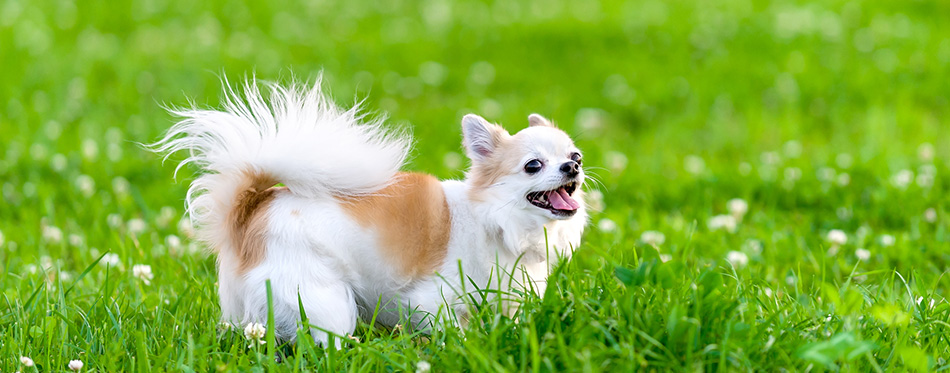
Chihuahuas are hugely popular little dogs and a common sight in city parks and cafes. They are compact and dainty but can be quite feisty little characters. They are very intelligent and take to training well but can have a bit of an attitude problem if you don’t keep them in check. You don’t need a huge house or even a garden to keep a Chihuahua because they don’t need a great deal of exercise and indoor games will suffice. Adult human company is what they crave and they will get on well with older children. However, they could get injured by boisterous toddlers and won’t want to share their toys with little children. This does not make them an ideal choice for young families.
If you are looking for a totally devoted companion, they are the breed for you. However, this devotion can spill over into separation anxiety and excessive barking when you leave them on their own. They require little grooming although their eyes and ears need a lot of care and attention. As with all pure-bred pedigrees, the pups are not cheap to buy.
If you are looking for more options, check out our guide on Dog Food For Chihuahuas.
Bichon Frise
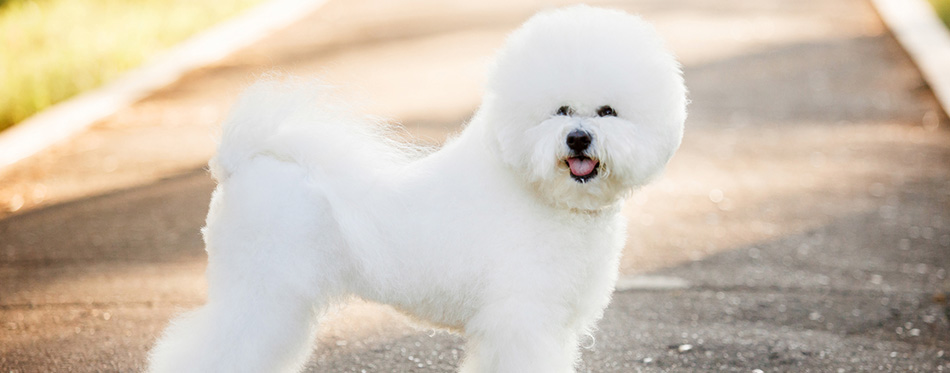
The adorable Bichon Frise is like a fluffy little teddy bear and is just about as cute as it is possible to get. They will adapt easily to all sorts of family situations and are very playful, even when they get older. Most of them are easy to train but some can be quite stubborn when it comes to house training so you will need to be consistent and patient. They shed very little but that gorgeous fluffy coat is going to need a lot of maintenance and professional grooming to keep it looking at its best. That does not come cheap!
They do not need a great deal of exercise to keep them healthy and can live until they are nearly 20 years old. This is very good news because they will form a strong bond with their human family. They will not like to be left on their own and separation anxiety could be an issue. They are also one of the breeds that are prone to allergies.
Boston Terrier
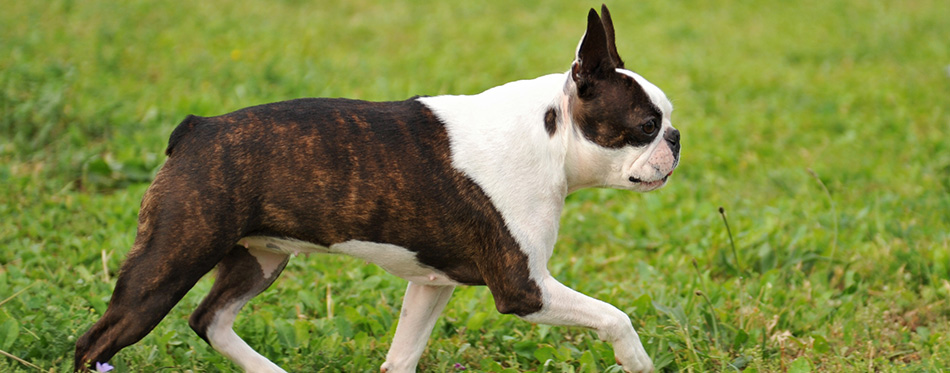
The Boston Terrier may be the new kid on the block of small dog breeds but they are fast becoming a firm favorite with dog owners. They are a cross between an English white terrier and the English bulldog. Whilst they are small in stature, they are very muscular and were originally bred for fighting. Don’t let this put you off because these days they are friendly and affectionate.
Because of their tendency to get excitable and boisterous, you’ll need some open floor space or a garden where they can burn off some energy. They do shed a little but you can keep this to a minimum with regular grooming. Their gentle, patient nature means that they are excellent with kids of all ages. As a robust little dog, they can even handle a rough toddler! In terms of health issues, they are prone to developing a curvature of the back called roaching, corneal ulcers, reverse sneezing and brachycephaly.
French Bulldog
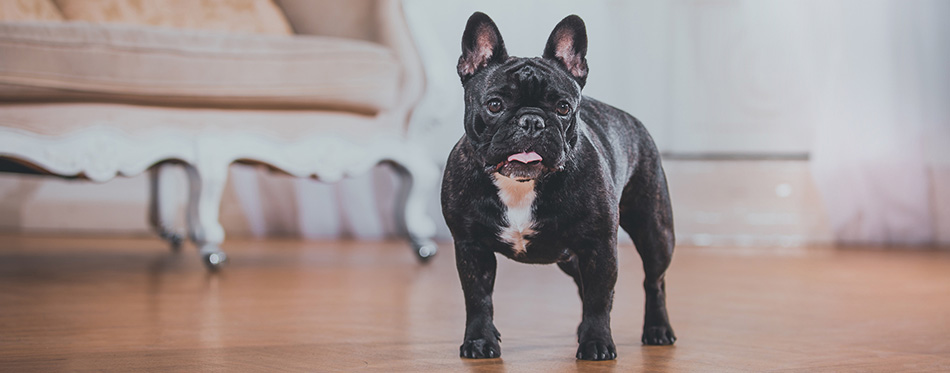
French Bulldogs are small dogs but are extremely muscular and look strong and heavy boned. They have a smooth coat which can be a wide variety of patterns and colors. Frenchies are an ideal choice for first-time dog owners because they are relatively easy to train and can be house trained quickly. They thrive in a family environment and are usually great with children although supervision is always recommended with younger kids.
They can adapt to living in an apartment with ease and need a couple of short walks a day. You’ll need to groom them once a week and pay close attention to folds and their tails but they do not shed a great deal. Your Frenchie will be very eager to please you but beware of spoiling them because this will bring out the worst in them. A certain ‘doggy odour’ may be an issue if you don’t keep them scrupulously clean. Unfortunately, overbreeding has led to them being prone to some hereditary and congenital health issues. You’ll need to have a Pied or White French Bulldog BAER tested when they are 6 weeks old because they can be deaf in both ears.
Papillon
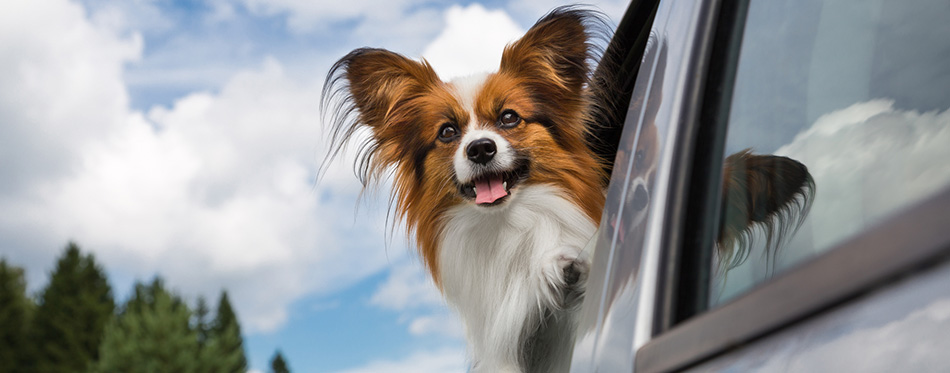
The little Papillon looks much like a small spaniel and some people call them “continental toy spaniels”. They are dainty little dogs with an intelligent and alert demeanor. If you are looking for an affectionate and loyal dog that can adapt to any house or apartment, they may be just right for you. Older people often choose them as companions because they are usually easy going and do not need a lot of exercise. They are also suitable for first-time dog owners because they are not very challenging. On the other hand, it may take you a few months to house train them because they can take a while to get the hang of it!
They won’t enjoy households with young children and require quite a lot of grooming to keep that long coat in check. Shedding is an issue, especially in spring and autumn so be prepared for a lot of vacuuming. They will not like being left on their own and have earned a reputation for being a bit ‘yappy’. The excessive barking is something that you may want to nip in the bud as soon as they arrive in your home!
Pomeranian
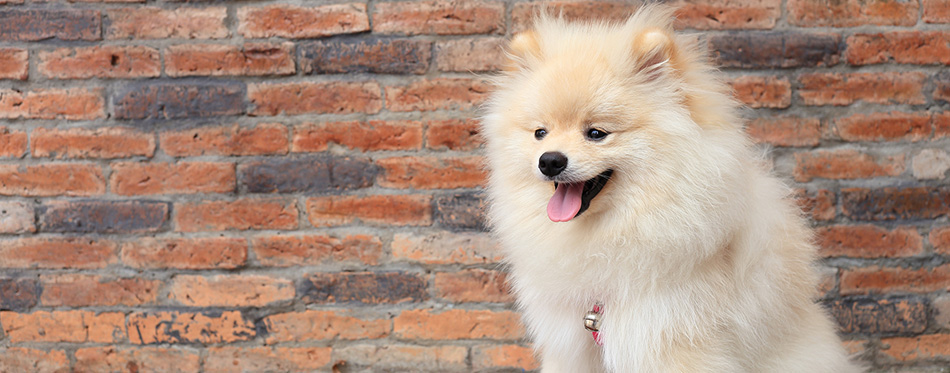
Pomeranians are famous for their thick coats (which takes a lot of grooming) and pointy faces which give them a fox-like look. Your little Pomeranian will be amazingly loyal to you and tend to form a very close bond to one member of the family in particular. Families with older children are perfect and the Pom’s playful nature will mean that they love being the center of attention and fussed over. However, they may not cope so well with very young children.
They are both eager to please and intelligent so they are quick learners. The exception to this seems to be house training which can take some time but that is common in the small breeds. They don’t need a lot of exercise (30 minutes a day) and can be housed in an apartment but Poms do need plenty of mental stimulation to stop them getting bored. They also need to be socialized with other humans and dogs when they are young or they will get possessive and anxious in new situations. Their total devotion to you can spill over into separation anxiety so they suit families that are at home a lot.
Check out our guide on Dog Food For Pomeranians for more info.
Pug
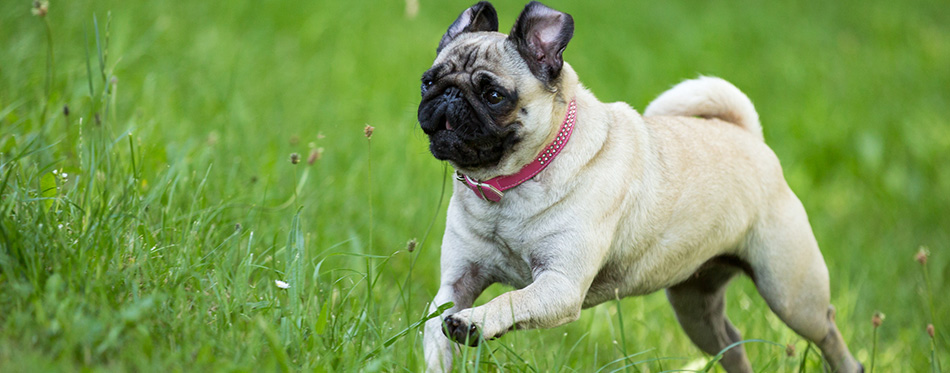
The Pug has been firmly established as a favorite small dog breed for many years and their popularity is showing no signs of declining. They are a typical small dog with a big personality and make incredibly affectionate pets. They have small but sturdy bodies and a short coat which takes very little grooming but which does shed a lot especially in early spring and autumn.
Your pug will be the family clown – delighting everyone with their playful and social nature. They don’t need a lot of exercise but can run around your home like a mad thing at times so be prepared for these manic episodes! They need a lot of attention and stimulation to keep them happy which leads some owners to describe them as ‘hard work’. Don’t leave them alone for long, they hate it! Pugs are famous for loud snoring and a lot of flatulence – you have been warned. Sadly, many years of intensive breeding to achieve their distinctive flat faces has resulted in them being prone to quite a few breathing difficulties and associated health issues.
Take a look at our review of Dog Food for Pugs for more options.
Shih Tzu
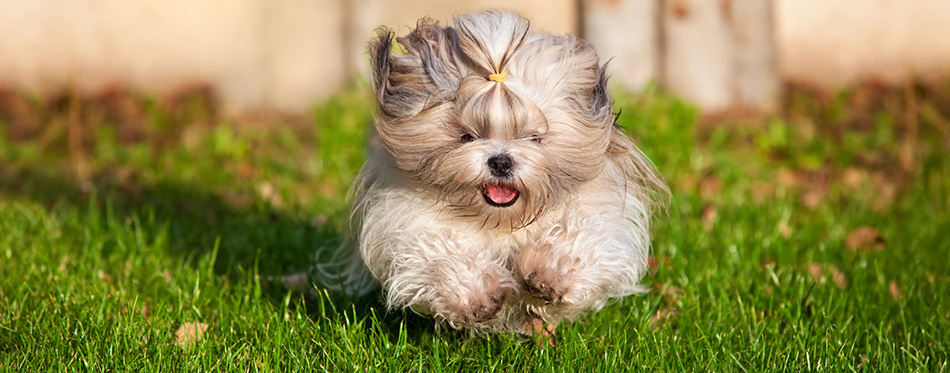
The Shih Tzu is all about personality and that luxurious long coat. As their name suggests, they were first bred in China and were highly prized by Emperors but are now popular all over the world. Their sweet personality and loving nature make them a perfect choice for your first dog. You just have to be firm to keep their stubborn streak at bay. They love people and will get on with children of all ages. Walks with a Shih Tzu are always a pleasure because they are so sociable and kind natured.
Their long, beautiful coat will need regular professional grooming which can be expensive but is worth it! Leaving a Shih Tzu alone at home for long periods is also a big mistake. They suffer from separation anxiety and are very likely to annoy the neighbors with their excessive barking. As with many other pure breeds, they can suffer from a few congenital health issues including hip dysplasia.
For a full list of our favorite options, see our round-up of the Best Dog Food for Shih Tzu.
Maltese
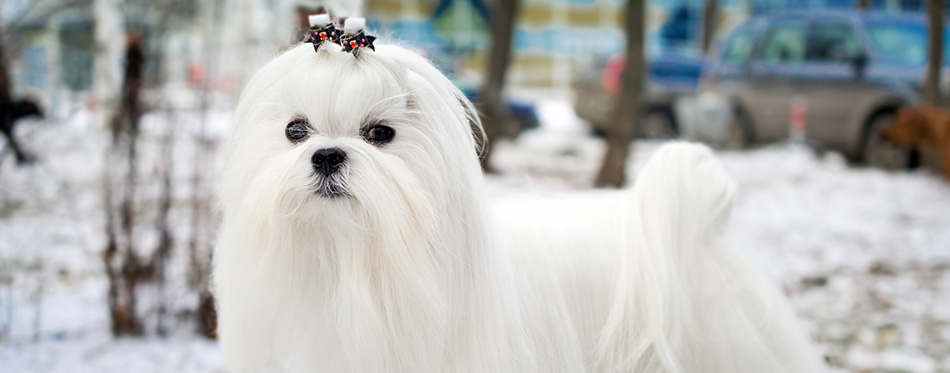
Beautiful and independent, the lovely Maltese are highly valued for looks and personality. Their coats are nearly always white but some can have a lemon or orange tinge. Their long, luxurious coat needs a lot of maintenance and this adds to the time and money that is needed to look after a Maltese. However, as they don’t have an undercoat, shedding is not a big problem and they suit owners who have allergies who can’t stand cleaning up dog hair. They can also be fussy eaters which some owners may find stressful.
You can’t find a sweeter natured dog than a Maltese. They are both intelligent and playful and will want to be involved in everything going on in the family. They’ll get on with any other animal in the home but will hate being left alone. They also have a tendency towards excessive barking which must be stamped out when they are pups. In terms of health, many Maltese do suffer from patellar luxation (a problem with the knees) and several other hereditary disorders.
Find out more about Dog Food for Maltese here.
Toy Poodle
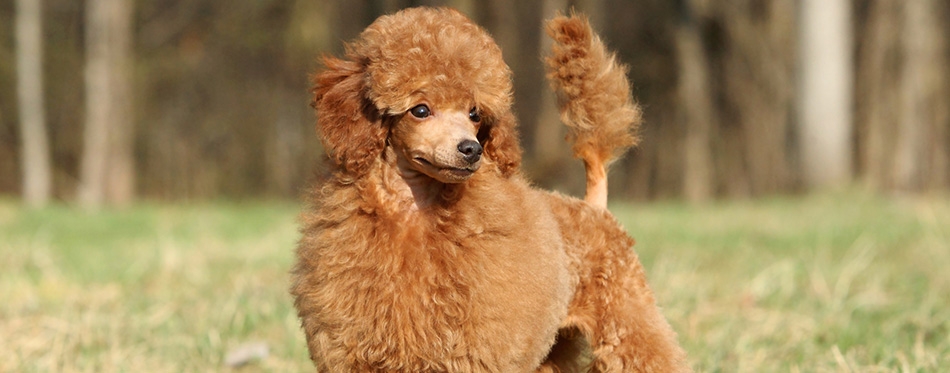
The Toy Poodle is the smallest of all Poodle breeds and they have the typical Poodle curly coat just like their bigger relatives. They do not shed a lot but you cannot commit to owning any type of Poodle if you are not willing to spend a lot of time and money on grooming. Their coat will need to be brushed every day and professionally clipped every six to eight weeks.
You can expect a highly intelligent but sensitive pup who will learn new things quickly and will want to do all they can to please you. They don’t need too much exercise (although they love a trip to the river or beach) and are very versatile. Watch out for any bad habits and nip them in the bud. They will not like to be left alone and thrive on constant human contact. You have to be prepared for some hefty vet’s bills because Toy Poodles can suffer from some hereditary health issues. There are tests available for two of them which are Progressive retinal atrophy (PRA) and Von Willebrands Disease.
Yorkshire Terrier
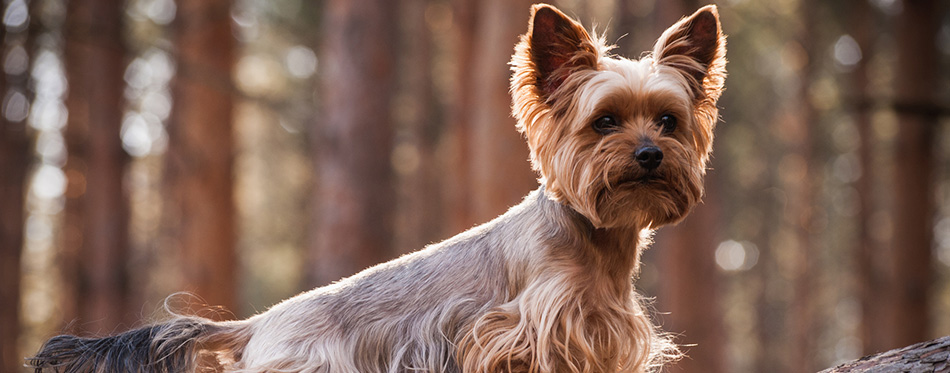
Yorkshire Terriers are well-proportioned and compact little dogs with quick, intelligent eyes and a cute black nose. They have a moderately long and straight, glossy coat that can be a wide variety of colours and patterns. It will need a fair amount of grooming. This is another breed that makes an excellent first dog for novice owners because they are so willing to please – you’ll have no problems training them. They are known for forming a strong bond with one person in the family and they can become very protective of them.
Your Yorkie will be an affectionate companion and a fierce watchdog. A Yorkshire Terrier is a big, brave dog in a small dog’s body! They will be fine around older children and other pets as long as they are well socialised. Life is never dull with a Yorkie! Occasionally they can be very yappy and over-protective so a firm approach is needed. Common health problems include hereditary cataracts and progressive retinal atrophy for which tests are available.
For more options, check out our detailed review of Dog Food for Yorkies.
Cocker Spaniel
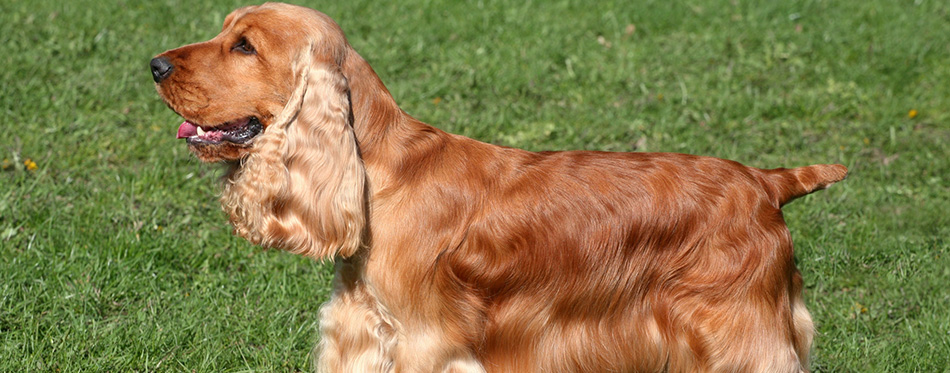
This small breed of spaniel is sometimes called the English Cocker Spaniel. They were originally bred as gun dogs but are now much-loved family pets. They are known for their lovely silky coat with lots of feathering on their legs. You will need to be prepared for a lot of grooming to keep it looking at its best and they shed steadily throughout the whole year.
Cocker Spaniels are playful and good-natured dogs who like to be with humans and with other dogs. They do not like to be alone and can get a bit over excited if you don’t correctly socialize them from a young age. They do like to bark a lot and are not best suited to families with young children. You need to remember that they are bred from gun dogs and therefore need regular, vigorous exercise as well as mental stimulation to keep them happy. Interactive games out in the fresh are just perfect.
Head over to our review of Dog Food For Cocker Spaniels for more choices.
Dachshund
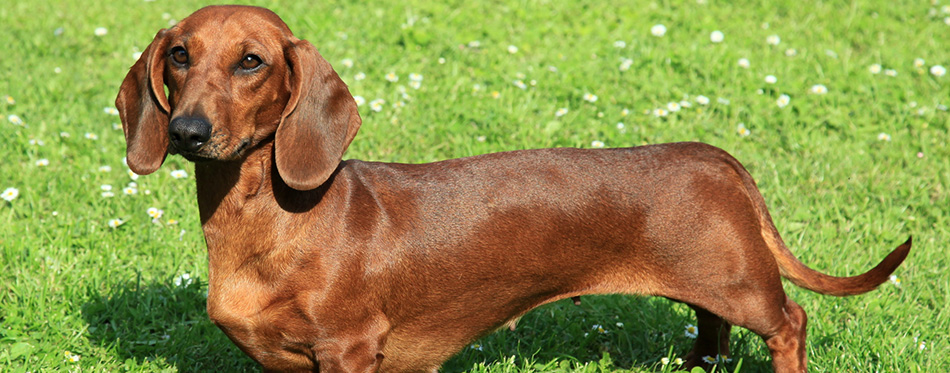
Dachshunds are unique little dogs that you cannot mistake for any other breed! They have a very distinctive shape with short legs and long bodies. They were originally bred for digging badgers out of their dens and to fit down rabbit burrows. These days, they are a much-loved small dog breed and make lovely family pets due to their intelligence and affection. They are fun-loving and playful, like to play the clown and despite their small stature are very energetic. They are very loyal to their owners.
You do need to be firm and consistent with their training because they can be feisty, stubborn and very fond of barking! For this reason, they are not the best choice as a first dog. You have to be very careful with Dachshund pups because they can damage their backs and joints during rough play. Daily exercise is essential to stop them from putting on weight. Be prepared for some health issues such as Intervertebral Disc Disease (IVDD) and Progressive Retinal Atrophy (NPHP4) which can both be tested for.
For a wider selection of choices, check out our Dog Food for Dachshunds guide.
Jack Russel Terrier
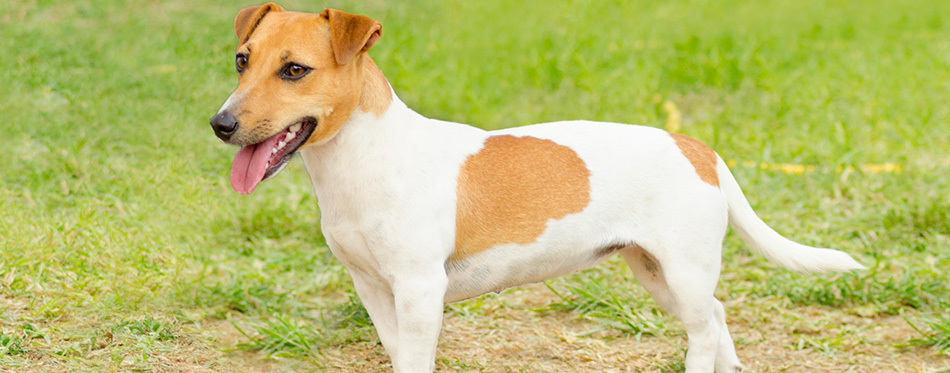
The Jack Russell is one of the most popular companion dogs and their terrier heritage means that they have an instinct for hunting down and catching vermin. This is useful if you want them to control mice and rats but can be problematic if you have pet rabbits and gerbils! They are small, well-proportioned dogs with almond eyes and powerful front legs. They are both loyal and affectionate and are very happy around children of all ages as long as you start their socialization from a young age. There is little for you to do in terms of grooming as they have a short, neat coat but they constantly shed.
If you want a little dog that you can teach canine sports and agility routines to, then they would be ideal for you. They are highly intelligent and very playful, even when they get older. However, they are quite high maintenance and require a firm hand and constant attention to keep them on the straight and narrow. As they prefer the outdoor life, they are more suitable for people who work outdoors or who have outdoor hobbies. A Jack Russel is not the best dog for you if you have a sedentary lifestyle. Their demanding nature means that they do not like to be left alone and you may come home to find your precious possessions have been chewed and you neighbors driven mad by incessant barking. Some Jack Russels are aggressive towards other dogs of the same sex.
You may also like our article on Dog Food For Jack Russell.
Pekingese
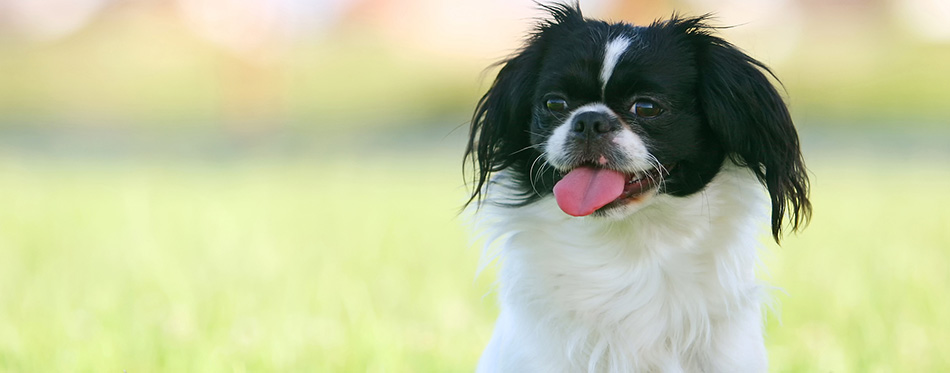
The Pekingese is a lovely little dog with Chinese ancestry which has a long silky coat that reaches the floor and a mane around their neck that makes them look like a lion. Pekes make an ideal pet for elderly people or those with mobility problems because they do not need a lot of exercise. However, they do have a tendency to overeat and can put on weight if you are not careful with their diets.
You will have to put in a lot of effort to keep their lovely coat in check and they shed a lot. Pekes don’t let their lack of stature dent their confidence and they are usually relaxed around other dogs and people. Their affectionate, loyal and calm natures make them perfect companions for adults but they are not the best pet for families with young children. They can suffer from hereditary and congenital deafness and are well-known for their loud snoring which is caused by their short muzzles.
The final decision on the best small dog breed for you is not an easy one. There are so many loyal, cute and affectionate dogs to chose from. You have to match up the characteristics of the breed with your own family circumstances and lifestyle. The better the match, the happier the dog will be and the more you will gain from the relationship.
Sources:
- Top 10 ‘Small Breed’ Dogs – PetMD

